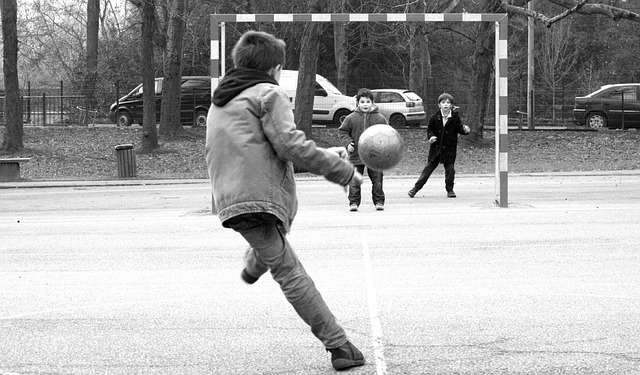Oregon's contempt cases are governed by state laws and specific procedural guidelines, ensuring a fair and structured process. These rules define contempt as willful disregard of court orders and categorize it into civil and criminal cases. Individuals or entities with a direct interest can initiate proceedings within one year, providing evidence of substantial violations. The Oregon procedural guidelines safeguard accused parties' rights, including due process, confrontation, and presenting evidence, while emphasizing clear and specific court orders to mitigate defenses like inability to comply.
“Oregon courtroom protocols for contempt cases are crucial for understanding the state’s legal procedures when dealing with violations of court orders. This comprehensive guide explores Oregon’s specific procedural guidelines, focusing on contempt of court. We delve into the legal definition and types of contempt recognized in Oregon, highlighting the steps to initiate a proceeding, evidence requirements, and the rights of accused parties. By understanding these protocols, folks can navigate Oregon’s contempt cases effectively.”
- Understanding Oregon's Courtroom Protocols for Contempt Cases
- Legal Definition of Contempt and its Types in Oregon
- Initiating a Contempt Proceeding: Who Can File and Deadlines
- Evidence and Burden of Proof Requirements for Contempt Charges
- Rights and Defenses for Accused Parties in Oregon Contempt Cases
Understanding Oregon's Courtroom Protocols for Contempt Cases

Oregon’s courtroom protocols for contempt cases are governed by both state laws and procedural guidelines, ensuring a structured and fair process. These protocols are designed to maintain order and respect within the judicial system, allowing for the effective resolution of contempt matters. The Oregon procedural guidelines contempt provide clear directives on procedures to be followed, from initial charges to sentencing, ensuring due process rights for all parties involved.
Understanding these protocols is crucial for both legal professionals and individuals facing contempt charges. Oregon’s rules emphasize open court proceedings, where evidence is presented and arguments are heard publicly. This transparency aims to uphold the integrity of the judiciary while allowing for robust legal representation and a fair assessment of the facts.
Legal Definition of Contempt and its Types in Oregon

Contempt is a legal term with various interpretations, but in the context of Oregon courtroom protocols, it refers to willful disregard for or failure to comply with court orders. The Oregon procedural guidelines define contempt as an act or omission that obstructs or impedes the administration of justice within the state’s courts. This can encompass a broad range of behaviors, including direct defiance of court orders, disruptive conduct in the courtroom, and failure to fulfill legal obligations.
In Oregon, contempt cases are categorized into two main types: civil and criminal. Civil contempt involves non-compliance with court orders related to financial matters or other civil proceedings, often used to enforce agreements or ensure parties fulfill their responsibilities. Criminal contempt, on the other hand, is more severe and involves willful conduct that obstructs justice, such as disrupting court proceedings or refusing to testify. The Oregon procedural guidelines outline specific rules for each type, ensuring a structured approach to addressing contemptuous behavior in the state’s courts.
Initiating a Contempt Proceeding: Who Can File and Deadlines

In Oregon, initiating a contempt proceeding involves a clear set of procedures and timelines as outlined by the state’s procedural guidelines. Any person who believes another individual or entity has failed to comply with a court order may file a motion for contempt. This includes private citizens, businesses, and even government agencies, provided they have a direct interest in the case. However, there are stringent deadlines to consider; typically, a motion for contempt must be filed within a reasonable time after the alleged violation of the court order occurs, often no later than one year from the date of the order’s entry.
The Oregon procedural guidelines emphasize the importance of specificity in such filings. The movant must provide clear evidence and detail why they believe the respondent is in contempt, citing specific provisions of the court order that have been violated. This stringent approach ensures that contempt charges are brought only when warranted by direct and substantial violations of court mandates.
Evidence and Burden of Proof Requirements for Contempt Charges

In Oregon, the burden of proof for contempt charges is a key aspect of courtroom protocols. To establish contempt, the petitioner must prove their case beyond a reasonable doubt, adhering to the state’s procedural guidelines. This involves presenting clear and convincing evidence that demonstrates the alleged contemnor willfully violated a court order. The focus is on ensuring justice and maintaining the integrity of legal proceedings.
Oregon’s procedural guidelines for contempt cases require specific types of evidence. These include direct testimony from witnesses, documentary proof such as court orders and related records, and any other relevant physical evidence. The rules emphasize the importance of accurate documentation and meticulous record-keeping throughout the process, ensuring a fair and transparent legal environment.
Rights and Defenses for Accused Parties in Oregon Contempt Cases

In Oregon contempt cases, accused parties enjoy several rights and defenses guaranteed by state procedural guidelines. These include the right to be informed of the charges, to confront accusers, and to present evidence in their defense. The proceedings must adhere to Oregon’s strict rules on due process, ensuring a fair hearing. Additionally, the accused can invoke various defenses, such as claiming that they were unable to comply with the court order or that the order was unclear or ambiguous.
Oregon procedural guidelines for contempt cases emphasize clarity and specificity in court orders. If an accused party can demonstrate that they understood the expectations placed upon them by the court, it may serve as a defense against contempt charges. Furthermore, exigent circumstances or good faith efforts to comply can also be considered mitigating factors. These rights and defenses ensure that individuals facing contempt accusations in Oregon are treated fairly within the legal system.






